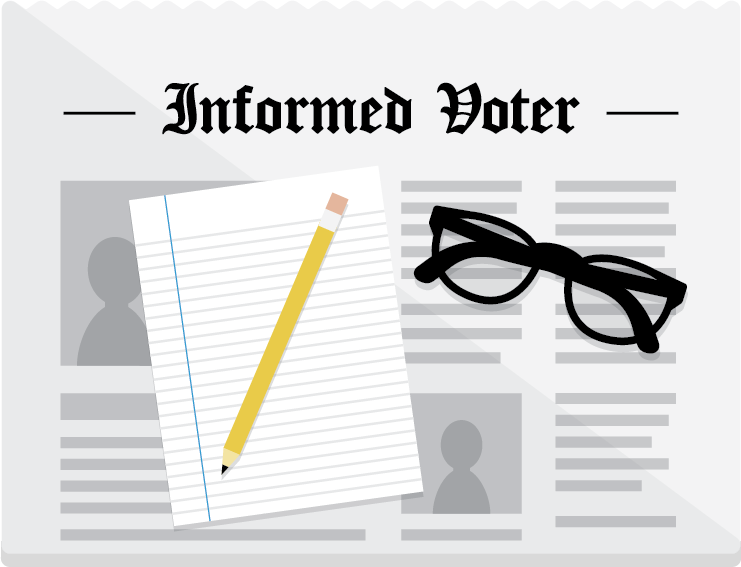Understanding Candidates’ Positions on Climate Issues: A Crucial Endeavor for Voters
By taking responsibility for understanding the implications of our votes, we can collectively drive the change necessary to combat climate change and build a resilient future.


Elected officials have the power to influence legislation that affects our environment. This includes policies related to renewable energy investment, carbon emissions regulation, land use, and public transportation. For instance, a candidate advocating for robust climate policies is likely to support transitioning to renewable energy sources, imposing stricter regulations on polluters, and investing in sustainable public infrastructure. Conversely, a candidate who downplays climate change may promote fossil fuel extraction or roll back environmental protections, ultimately exacerbating the crisis.
Understanding candidates’ positions on climate issues is also essential from an economic perspective. The costs associated with climate inaction are staggering, with climate-related disasters leading to billions in damages annually. Moreover, a well-crafted climate policy can spur economic growth by creating jobs in renewable energy sectors, energy efficiency, and sustainable agriculture. Evaluating candidates on their ability to harness this potential for economic growth versus those who cling to outdated industries is vital for securing long-term prosperity.
Climate change also poses significant public health risks. Increasing temperatures can lead to heat-related illnesses while deteriorating air quality exacerbates respiratory issues and cardiovascular diseases. Candidates who recognize the link between climate change and public health are more likely to support measures that mitigate these risks, such as investing in clean energy and enhancing public health infrastructure. Understanding these positions can aid voters in choosing representatives who prioritize community health alongside environmental sustainability.
Moreover, understanding candidates' positions is just the beginning. Voters must remain engaged after elections, holding officials accountable for their promises and policy implementations. Civic engagement can take many forms, from grassroots organizing and advocacy to direct communication with representatives. By fostering a culture of accountability, citizens help ensure that climate policies remain a priority, influencing future elections and legislative sessions.
In conclusion, comprehending candidates’ positions on climate issues is essential for anyone wishing to contribute to a sustainable future. Climate change is one of the most pressing challenges of our time, affecting economic stability, public health, and the well-being of future generations. Voters have the power to shape policy outcomes through informed decisions, amplifying their voices in a system where accountability and civic engagement are paramount. As elections approach, prioritizing climate literacy in our political evaluations can pave the way for a healthier planet and a more sustainable economy, benefiting us all. By taking responsibility for understanding the implications of our votes, we can collectively drive the change necessary to combat climate change and build a resilient future.
Sources:
https://pmc.ncbi.nlm.nih.gov/articles/PMC8853238/
https://odi.cdn.ngo/media/documents/The_Cost_of_Inaction.pdf
https://www.aihw.gov.au/getmedia/0567e647-f152-4aa9-9e4f-f0404b139574/11937.pdf.aspx?inline=true%5C
In an era where climate change is no longer a distant concern but an immediate crisis affecting all aspects of life, understanding the positions of political candidates on climate issues has become an essential responsibility for voters. The decisions made by elected officials can profoundly impact environmental policies, economic stability, public health, and the overall trajectory of our planet’s future. Therefore, making informed choices based on candidates’ stances on climate change is crucial for creating a sustainable world.
Climate change manifests in various forms, including rising global temperatures, extreme weather events, sea-level rise, and biodiversity loss. According to the Intergovernmental Panel on Climate Change (IPCC), we are on track to exceed the critical 1.5°C warming threshold unless immediate and aggressive actions are taken. Consequently, all governments must implement policies that address these challenges, making it imperative for voters to comprehend candidates’ proposals and commitments.


Informed voting is the cornerstone of a functioning democracy. By understanding where candidates stand on climate issues, voters can make choices that align with their values and the future they desire. Strategies for gaining this knowledge include reviewing candidates’ campaign materials, attending debates and town hall meetings, and seeking information from reputable organizations focused on environmental advocacy. This investment of time and effort can significantly alter the outcome of elections, especially in close races where the environmental agenda may hang in the balance.
Image courtesy of center for civic design
